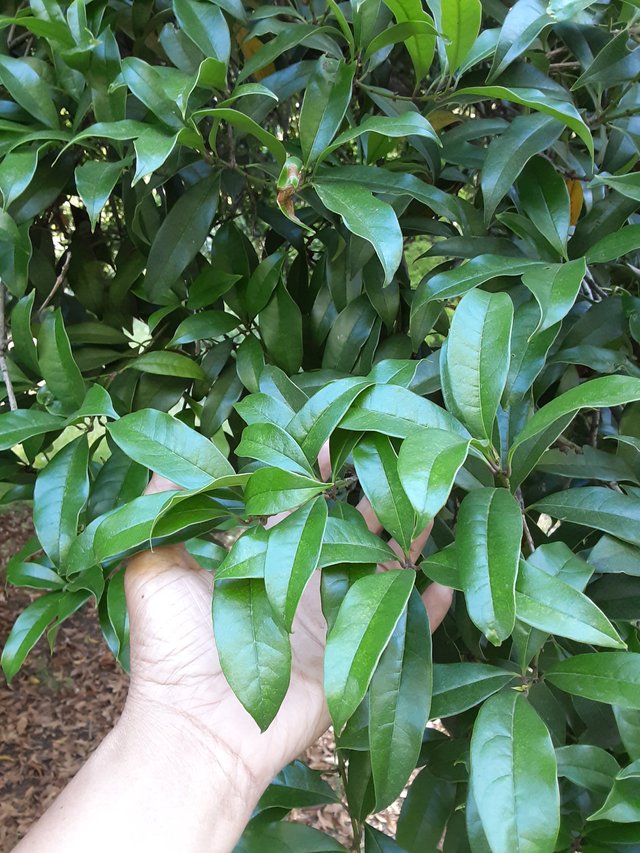The giant chinquapin (Chrysolepis chrysophylla) has glossy green leaves with a golden underside and impressive longevity, staying on the tree for up to three years

Chrysolepis chrysophylla, also known as the giant chinquapin, golden chinquapin, or western chinquapin, is a stunning evergreen tree or shrub native to the Pacific Coast of the United States. One of its defining features are its unique and beautiful leaves.
Chrysolepis chrysophylla boasts sclerophyllous leaves, meaning they are tough, leathery, and well-adapted to dry environments. These leaves come in a lanceolate to oblong shape, resembling an elongated oval with pointed tips. The edges are smooth and lack any teeth or serrations.
The size of these leaves is impressive, ranging from 2 to 6 inches (5-15 cm) in length. But the real showstopper lies on the underside. Here, the leaves live up to the "golden" in their common names. They are covered in a layer of fine, golden-yellow hairs, giving them a shimmering, almost metallic appearance. This golden fuzz not only adds beauty, but also helps the plant conserve water by reflecting sunlight and reducing evaporation.
The upper surface of the leaf presents a contrasting picture. It's a deep, glossy green, smooth to the touch, and often described as varnished or waxy. This glossy surface further aids in water conservation and helps the leaves shed rain and snow. The leaves are arranged alternately on the branches, creating a visually appealing, asymmetrical pattern.
Interestingly, these leaves demonstrate remarkable longevity. Unlike most deciduous trees, Chrysolepis chrysophylla is evergreen, meaning it keeps its leaves year-round. Each individual leaf can remain on the tree for an impressive three years before finally falling and being replaced by new growth.
So, the next time you encounter a giant chinquapin, take a moment to admire its remarkable leaves. Their unique combination of shape, color, texture, and longevity all contribute to the beauty and resilience of this fascinating Pacific Coast native plant.
Ref.:
 |  |
Upvoted! Thank you for supporting witness @jswit.